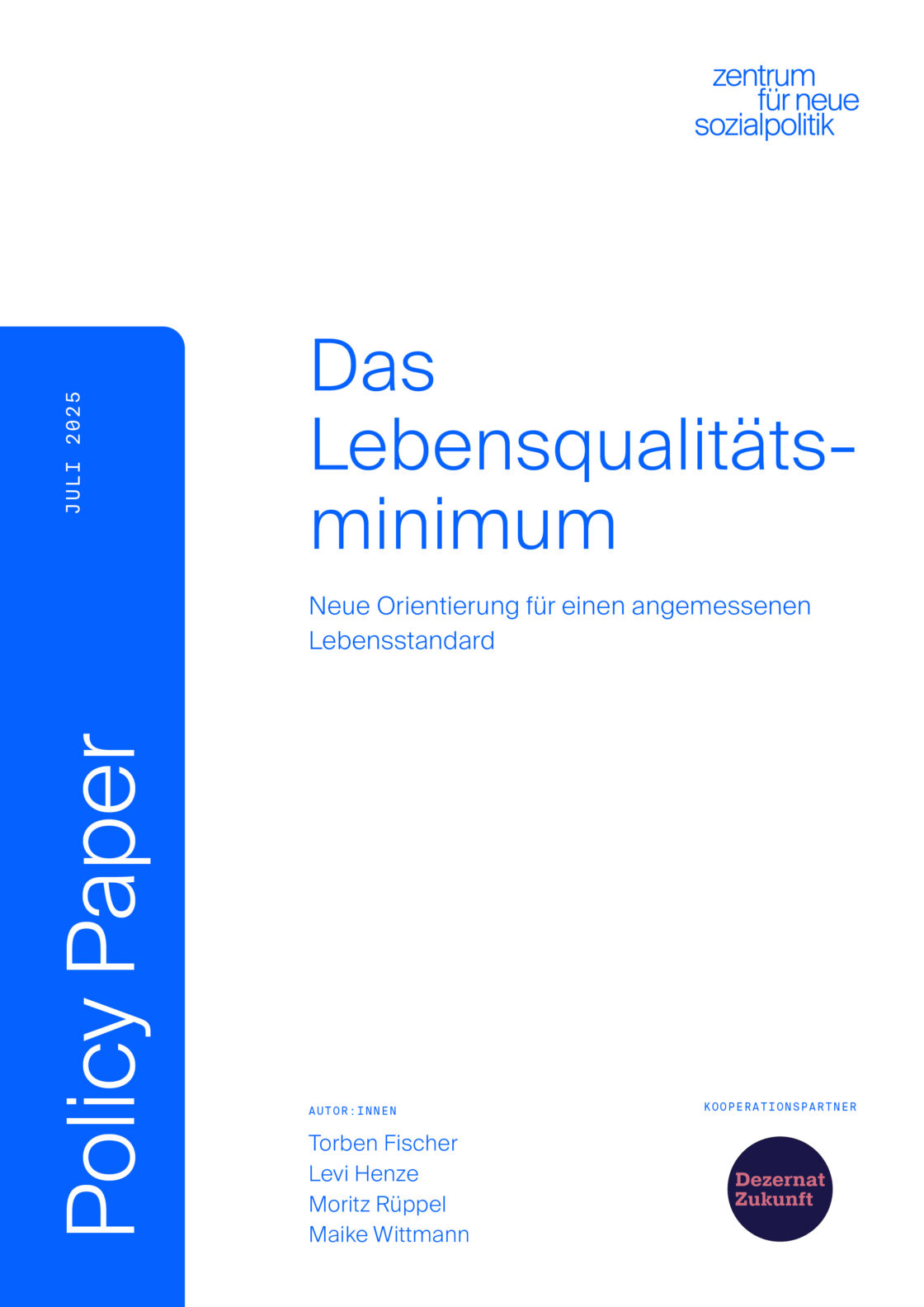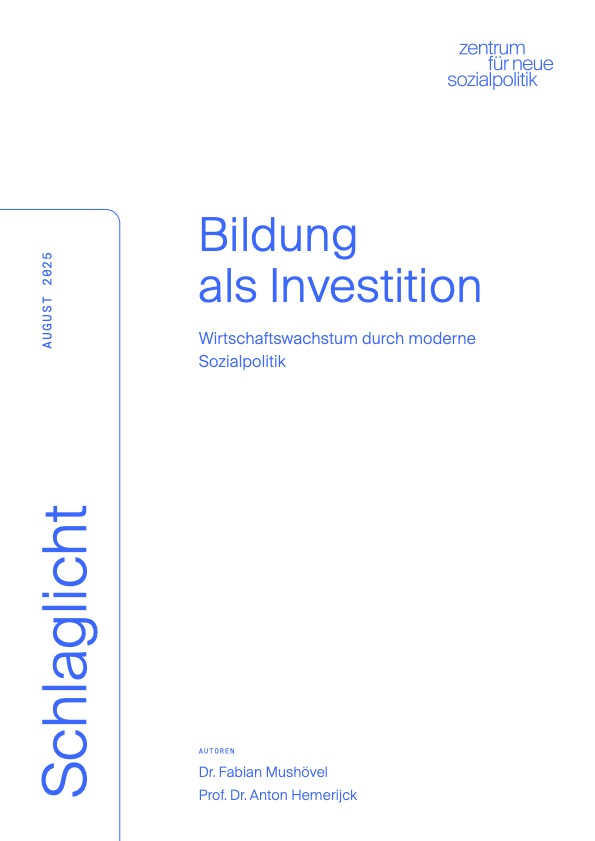
Our Publications
Our publications provide orientation in the social policy debate – and highlight concrete courses of action.
We publish in-depth analyses, clear positions, and practical recommendations on current and future social policy issues. Our publications are aimed at policymakers, experts, academia, and an interested public.
Access & Use
All publications are available for free download. They may be cited, linked, and shared, provided that author, title, source, and year of publication are acknowledged. Please also refer to the specific license information included in each document.
Requests & Reprint Rights
For extensive use of our content, print publication, or event-related materials, please contact us. Print-ready files and supplementary resources are available upon request.
Contact & Collaborations
Interested in connecting with our work, advancing our analyses, or shaping a joint initiative? We welcome your interest and look forward to a constructive exchange.
Our blog features interviews, debate contributions, and personal perspectives from our authors.
Focus area
Keywords
Between austerity and growth
In their spotlight article, Dr. Fabian Mushövel and Prof. Dr. Anton Hemerijck explain why buffer policies – i.e., protection against illness, unemployment, or other setbacks – are an underestimated driver of growth. They stabilize demand, prevent social upheaval, and form the basis of any socially responsible investment policy. Against this backdrop, the authors criticize the planned reform of the citizen's income: it weakens this central pillar instead of bundling benefits or reducing transfer withdrawal rates.
Who pays for the energy transition?
In the spotlight “Who pays for the energy transition? Social distribution effects and group-related communication of the Gebäudeenergiegesetz,” Dr. Philip Rathgeb and Dr. Leonce Röth analyze the political discourse and weaknesses of the GEG as a central climate social policy within the framework of the Group Appeals project.
Education as an Investment
The socio-political discourse in Germany is dominated by the notion that social policy is primarily a cost factor. Dr Fabian Mushövel and Prof. Dr Anton Hemerijck argue that modern social policy should instead be understood as social investment: a targeted investment that can promote long-term economic growth.
Unequal Opportunities, Low Trust
In Germany, one's background often determines one's future. Social advancement seems virtually unattainable for many, and trust in politics is alarmingly low. Our latest study shows that a large part of the population wants a welfare state that creates real opportunities and reduces inequalities. However, without fundamental reforms, the promise of the social market economy is in danger of becoming an illusion.
A Standardised Federal Pension
Pension provision in Germany faces key challenges such as poverty in old age, unequal life expectancy and a changing concept of lifetime achievement beyond gainful employment. Policy Fellow Dr Elmar Stracke proposes a two-pillar reform: a standardised, poverty-preventing federal pension secures the minimum subsistence level, while supplementary private and occupational pension schemes reward performance.
Minimum Living Standard in Germany
What do people need financially to live comfortably? The Minimum Income Standard (MIS) in the UK attempts to answer this question: expert-supported focus groups create a fictitious basket of goods and services, the value of which is then quantified. This results in a budget for a comfortable life. So far, there are no comparable figures for Germany. The Minimum Living Standard project aims to change this.
Lack of Trust as a Challenge of Our Time
Germans' trust has been shaken: both their trust in politics and their trust in their fellow citizens has declined significantly in recent years – exacerbated by the COVID crisis. Our policy paper identifies characteristics and factors that make policies and institutions trust-building, and examines how basic social security can be designed to exploit its great potential for building trust.
The German Tax and Transfer System
How do tax allowances in the existing German tax system affect the tax burden on different income deciles and household types? And what happens if tax allowances are converted into lump-sum tax credits? This study on the German tax and transfer system, conducted under the scientific direction of Prof. Dr Andreas Peichl (ifo Institute), examines these questions using selected examples.
Social Aid in Times of Crisis
With the aim of providing unbureaucratic and rapid social aid in times of crisis, the federal government is focusing on relief measures that do not require a means test. How do citizens view the abolition of means testing? What influences the acceptance of this type of policy?
Low Trust in Politics, Lack of Participation
Trust in politics and political participation are unevenly distributed in Germany: our analysis of the ALLBUS population survey shows that unemployed people and those who have experienced unemployment are more distrustful of political institutions and politicians and less interested in voting.















